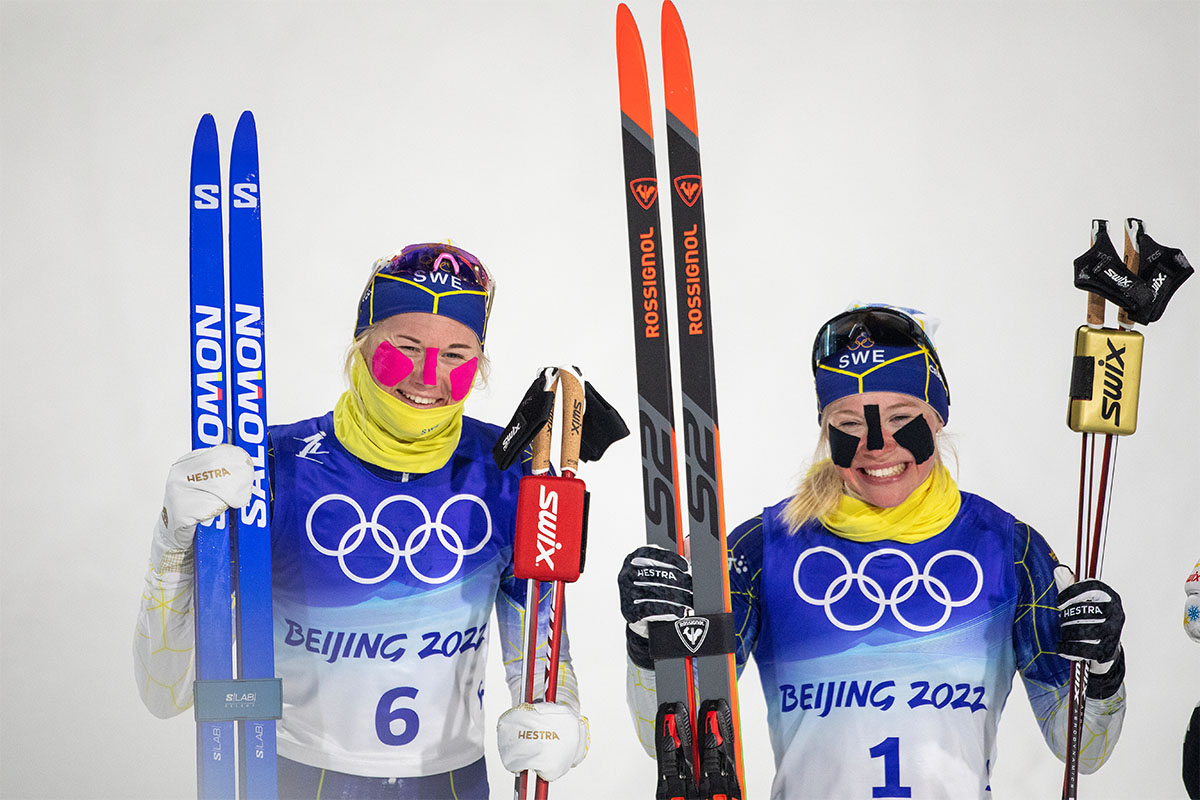Tricks of the trade tend to sweep through the Olympic Village like wildfire.
You might remember the cupping craze from the Rio Olympics, when swimmers started showing up the pool with dark purple circles all over their backs. Or reports from earlier that year that high-profile athletes were adopting blood-flow restriction (BFR), a strength-training hack that involves placing an inflated “performance tourniquet” around one’s arms and legs.
Olympians even seem to copy each other in matters outside the field of competition — over 1,000 athletes and coaches apparently brought burner phones to Beijing for these Winter Games, in order to elude the “crazy, scary” spying tech of the Chinese state.
The latest mania? Not exactly a life hack that’s going to push one competitor over the top, but dozens of athletes are employing it. You may have noticed colorful strips of tape adorning the cheeks and noses of Olympians competing in ski, snowboard and biathlon events. That’s kinesiology tape, made by a brand called KT tape.
Normally, KT tape is used as a low-stakes performance-enhancer and recovery tool. Made from an extremely stretchy mix of nylon and cotton, it imitates the skin’s elasticity to allow for full range of movement. You can apply it to a specific muscle to increase blood flow (some runners recommend taping glutes to “wake up” the muscle), over the knees to create space in the joints (which limits irritation in the region) or along trigger points in the back and shoulders to decompress tissue, mitigate swelling and improve posture.
So, why are skiers sticking it to their faces? Put simply: they’re freezing. The mountains they’re skiing on are up to 150 miles outside of Beijing, and temperatures have flirted with zero degrees Fahrenheit for days. There’s been one case of frostbite already, in a snowboarder, and multiple biathlon athletes have had trouble loading their guns. Winds as strong as 20 miles-per-hour have not made matters any easier.
These Olympians travel with a veritable first-aid kit of equipment meant to ease their weary bones and muscles. It’s likely they’ve started cutting up some of that excess KT tape, which usually hangs out on their calves, to protect their skin from the bitter pain of Taizicheng gales.
The CEO of KT Tape seems lightly amused by the trend: “We certainly applaud the creativity — we are proud to support Team USA!” That said, he cautions that KT tape isn’t designed to be used in this way. “KT Tape doesn’t endorse the use of kinesiology tape on the face as it isn’t clinically tested, and the adhesive that works so well to keep tape in place [can be difficult to remove] from the delicate skin on the face.”
In this cold, and after this many years of work, it appears Olympians would rathe rip a couple band-aids off then feel the full might of a Chinese winter. We don’t blame them one bit.
Whether you’re looking to get into shape, or just get out of a funk, The Charge has got you covered. Sign up for our new wellness newsletter today.


















